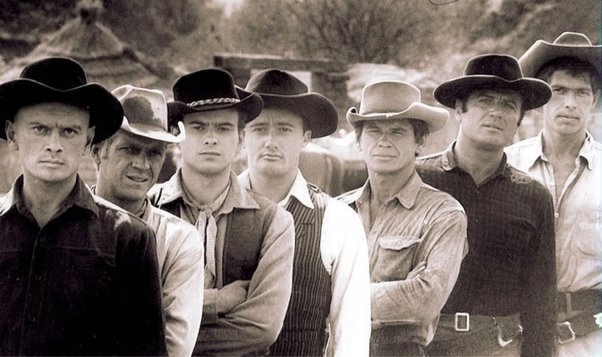Yul Brynner, a multifaceted talent hailing from Russia, France, Switzerland, and America, was celebrated as one of the premier actors of his era.
His diverse skill set encompassed acting, singing, directing, producing, modeling, photography, and writing, making him a captivating presence in the world of showbiz.
Brynner's legacy is deeply intertwined with his iconic portrayal of King Mongkut in the renowned Rodgers and Hammerstein musical “The King and I,” earning him two prestigious Tony Awards.
Transitioning to the silver screen, he clinched an Academy Award for Best Actor at the 1957 Oscars when the theatrical production was adapted into a movie.
The pivotal role in “The King and I” marked the beginning of Brynner's illustrious Hollywood journey, which included notable appearances in films like “The Ten Commandments,” “The Brothers Karamazov,” and “The Sound and the Fury” during the late 1950s.
By the early 1960s, Brynner's star ascended with the release of “The Magnificent Seven,” a western reinterpretation of Akira Kurosawa's “Seven Samurai.”
In this ensemble cast featuring luminaries such as Charles Bronson, Eli Wallach, James Coburn, and Steve McQueen, tensions simmered beneath the surface, ready to boil over.
The camaraderie on set soured as egos clashed, particularly between McQueen and Brynner.
McQueen's discontent with his character's limited dialogue led to clashes with the director, eventually resulting in him seeking ways to overshadow Brynner.
From disruptive antics during Brynner's scenes to physically undermining his co-star's presence, McQueen's actions exuded pettiness and a thirst for the limelight.
One especially contentious incident involved McQueen undermining Brynner's physical stature by kicking away the elevated platform Brynner used to match the height of his co-stars, a move dripping with insolence and disrespect.
As tensions peaked during production, eyewitnesses recounted a heated confrontation between Brynner and McQueen, with accounts suggesting that Brynner resorted to physical intimidation in response to McQueen's provocations.
The animosity between the two titans of the silver screen was palpable, with McQueen later reflecting on their strained dynamic, highlighting their incompatible working styles and professional approaches.
Robert Vaughn, their co-star, shed further light on the feud in his biography, painting a picture of McQueen's deep-seated jealousy and cutthroat competitiveness towards Brynner.
Vaughn's observations underscored McQueen's relentless pursuit of success and dominance, revealing the underlying tensions that fueled the fiery conflict on set.
Related Posts
- The Bitter Feud: Yul Brynner and Steve McQueen’s Hatred Unleashed
- Steve McQueen’s Apology to Yul Brynner on his Deathbed
- Steve McQueen and Yul Brynner’s Legendary Clash Resolved on McQueen’s Deathbed
- Feuding Cowboys: Steve McQueen and Yul Brynner’s Legendary Showdown
- Steve McQueen’s Determination to Steal the Spotlight in “The Magnificent Seven”































